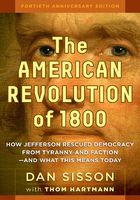To Marian who makes all of this possible
It was the broken plate.
The first and second episodes of Breaking Bad were good … but I was a snob, watching them with my arms crossed, grumbling to myself that this new entry on AMC's airwaves was enjoyable, chewy pulp that fell below the high-water mark of the transcendently brilliant Mad Men.
Then, I saw it. A quick glimpse inside a trashcan as Walter White discarded an empty can of beer. A beer he sipped while talking to a man with a bike lock securing his throat to a pole. A man affectionately named Krazy-8, who softly told Walter that he was not cut out for this kind of work. "This kind of work" being cold-blooded murder.
I should probably back up. A few hours earlier, Walt compiled a list while sitting on the very same toilet he had just used to flush away the liquefied remains of Krazy-8's cousin and partner in crime, Emilio, whom Walt had poisoned to death with improvised mustard gas in order to save his own life. But Krazy-8 somehow survived the gassing and now, bike lock around his neck in the basement, Krazy-8 needed to be dealt with. Split into two columns, the list weighed the pros and cons—Column A, titled "Let Him Live," was rife with bullet points: "Judeo/Christian Principles," "It's the moral thing to do," "Won't be able to live with yourself," and last but not least, "Murder is Wrong." However, Column B, "Kill Him," offers only one:
"He'll kill your entire family if you let him go."
And so, pants around his ankles, taking a shit, Walter White weighs the costs and consequences of taking another man's life. And when he goes to Krazy-8, Walt begs him to give him a reason not to kill him. Because he doesn't want to. He doesn't want to break bad. And over the course of seven beautifully written and immaculately acted minutes, Krazy-8 does just that. He tells Walt that he wanted to study music at Oberlin, that, in fact, he spent years working in his family's furniture store to earn the tuition. Turns out Walt even shopped at the very same establishment years back for his now teenaged son's crib. And the two, jailor and jailed, sing the jingle for that furniture store together. And they bond. And Krazy-8 promises that he will exact no revenge whatsoever if Walt just lets him go. And Walt believes him. He nods, cheeks wet, relieved that he will not have to commit murder, as he shakes his empty beer can and says, "I'll go get the key."
Shit. I left something out. The most important something, actually. Because earlier, before the list on the crapper, before the long talk about Oberlin and furniture, Walt makes Krazy-8 a sandwich (he even cuts off the crusts), but when he reaches the bottom of the basement stairs, he's so overwhelmed by a coughing fit that he passes out. When he wakes up, the sandwich is on the ground beside the broken plate upon which it sat. Walt gathers up the wreckage and heads back upstairs to make a new sandwich, dumping the shards into the trash bin.
The very same trash bin into which Walt tossed his empty beer can right after grabbing the key that will free Krazy-8 from captivity below. But then he sees it.
The broken plate.
Walt walks away from it at first. Then returns. Takes out the pieces. Puts them on the counter and starts to put them together like a puzzle (I have a thing for puzzles) and as he does so, he already knows that puzzle will be missing one critical piece. And he starts to mutter, "No…." Over and over again. "No, no, no, no, no…." Because he knows where that missing shard of plate is. It's clutched in Krazy-8's hand. Just waiting to exact revenge upon him. And Walter is saying "no" because he now has no choice. He has to ignore everything in Column A because the only relevant information is in Column B. And we all know what "B" stands for.
Boron.
But seriously. It stands for "Bad." And that is how Walter breaks when he returns to the basement and chokes the life out of Krazy-8, as his victim manages to stab him in the leg with that piece of broken plate. The missing piece.
And it is here where the show transcends traditional storytelling and touches something greater. Because that empty space where the plate shard would fit is not the only missing piece in this episode. In fact, it begins and ends with a flashback (I have a thing for flashbacks) to Walt's college days as he and his lab assistant, Gretchen, attempt to break down the precise chemical composition of the human body and come up .111958 percent short. Gretchen has a theory for what that mystery (I have a thing for mysteries) element may be—
—The soul. But Walt shakes his head dismissively and responds, "There's only chemistry here." In other words … there is no soul.
Which brings us, at last, to Sepinwall.
Now hold on. I'm not saying he has no soul. Has he made me cry myself to sleep sometimes because he hated my writing? Sure. Who hasn't? But that doesn't mean he's soulless. And the point I am attempting to make has nothing to do with souls. It has to do with depth. It has to do with insight. It has to do with a rare and incredible skill. Because Sepinwall does not simply "recap" episodes of television….
… He helps us understand them. He doesn't just tell us what happened. He tells us why it happened. And he doesn't tell us if it's good or bad. He tells us why it's good or bad. Reading a Sepinwall postgame for an episode of a beloved show always enhances it, even if you disagree with his opinion. He is a storyteller, telling great stories about storytelling. Imagine the experience of watching a great football game with no play-by-play, and now imagine the same game with Howard Cosell calling it. This is the Sepinwall experience. Because he can take something that's already great …
… And transform it into something classic.
This is what Alan (and his many excellent peers) have done for television. They've elevated it as an art form by investing thousands of hours of their own time into appreciating TV. And in some notable cases, depreciating it (cough—season three of Lost—cough), but always in the spirit of fairness. The process can be harsh, but necessary. Because Sepinwall breaks plates. He puts them back together. He identifies the missing pieces. And then he uses those pieces to stab you in the leg.
And by you, I mean "me." But as much as it hurts to be stabbed in the leg, I know this this without a doubt—it has made me a better writer. This introduction notwithstanding.
So you bought this book. Maybe it's because you loved Breaking Bad as much as I did and you're ready for a deeper dive. Maybe you've never seen it and I just spoiled episode three for you and I'm really sorry about that but it's early in season one and it's not like I told you that Walter uses [REDACTED] and his Chekovian [REDACTED] to blow [REDACTED REDACTED REDACTED REDACTED][1]or that Hank ultimately [REDACTED]while taking a [REDACTED]and reading [REDACTED].[2]
Okay. I clearly don't understand why you would buy a book about a show that you've never seen. I also may have a little disdain for anyone who has never watched Breaking Bad because it is so utterly brilliant that I refuse to take anyone who hasn't seen it by now seriously. Sorry. I told you up front I was a snob.
But Sepinwall is not a snob. He is a guide. He is a translator. He is a curator. He is a disapproving parent challenging his kid to do better because he knows they can. He is a fan who must put aside his love for something so that he can approach it with integrity. He is an experienced pro who has watched and written about more episodes of television than we can possibly fathom. He is a little boy who feels butterflies of excitement when he turns on his TV.
So get ready to appreciate Breaking Bad all over again through the words of someone who loved it just as much as you did and spent almost seven years writing every word of it down. Because in addition to all the qualifications listed above, the author of this tome has one more worth mentioning. Because unlike Walter White and .111958 percent of the human body's composition …
… Alan Sepinwall has got a helluva lot of soul.
Damon Lindelof
December 26, 2016
NOTES
[1]AUTHOR'S NOTE: Hi. Alan Sepinwall here. I agree with Damon's point that odds are, if you've bought this book, it's because you already know and love Breaking Bad. Which is why I'm cool with him giving away so much detail about Walt and Krazy-8. But I suggested he not go further than that with the spoilers, and … well … the handful of you who are new to the show can thank me after you've seen the season four finale.
[2]AUTHOR'S NOTE: Yeah, Damon's gone mad with spoiler power here. (It would be like if I told you that on Lost, Locke is really [REDACTED.]) You can thank me again after you've reached the midpoint of season five.















